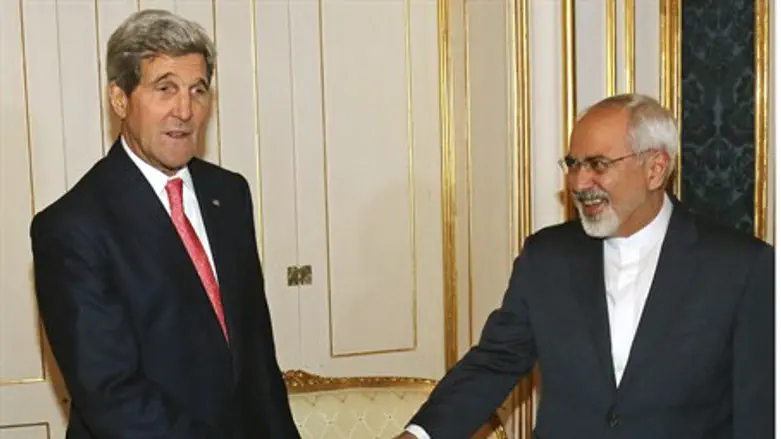
The deadline on reaching a final deal regarding Iran's controversial nuclear program, which on June 30 was extended to July 7, was postponed yet again after failing to reach completion by the allotted time on Tuesday.
US State Department spokesperson Marie Harf confirmed that the newly re-extended deadline will be Friday, July 10.
Just before Harf announced the extension, EU foreign policy chief Federica Mogherini told reporters, "we are continuing to negotiate for the next couple of days. We might see some ministers leaving in the next hours and then (be) ready to come back."
"We are interpreting in a flexible way our deadline, which means that we are taking the time, the days we still need, to finalize the agreement," she said.
The extension is significant as had a deal been reached before July 9, Congress would have only been given 30 days to review the deal and then vote on whether to support it or else keep sanctions in place.
If a deal is reached after July 9 that time span will be doubled to 60 days, allowing Congress more time to give a detailed inspection of the deal and drum up popular support against what has increasingly been warned against as a bad deal, allowing Iran to continuing developing its nuclear program without sufficient checks or inspections.
Regarding inspections, which Iran has refused to allow on sensitive nuclear sites, an adviser to Iran's parliament speaker on international affairs revealed Tuesday that Iran remains belligerent in its defiance of requests to allow inspections of the facilities.
"That we do not allow our military and sensitive sites to be inspected or that we refuse to send our (nuclear) scientists under the knife of interrogation is part of Iran's obvious and inalienable rights," Hossein Sheikholeslam told the Iranian Tasnim News Agency.
Another key sticking point aside from inspections has been Iran's demand that all sanctions be lifted as soon as a deal is reached, and its refusal to disclose the military aspects of its nuclear program.
On Monday, Iran demanded yet another concession in nuclear talks - this time, to end the UN arms embargo on the Islamic Republic.
Russian Foreign Minister Sergei Lavrov said Iran's opposition to sanctions stems on its desire to have free weapons access, noting, "I can tell you that there is only one big problem in terms of sanctions - it is the problem of a weapons embargo."
Experts have warned that the current sanctions regime against Iran has not been tough enough to provide a deterrent to Iran, the leading state sponsor of terror. Just last Monday Iranian officials announced that 13 tons of gold had been repatriated as part of sanctions relief, bringing the total in unfrozen assets since the November 2013 interim deal was signed to just under $12 billion.